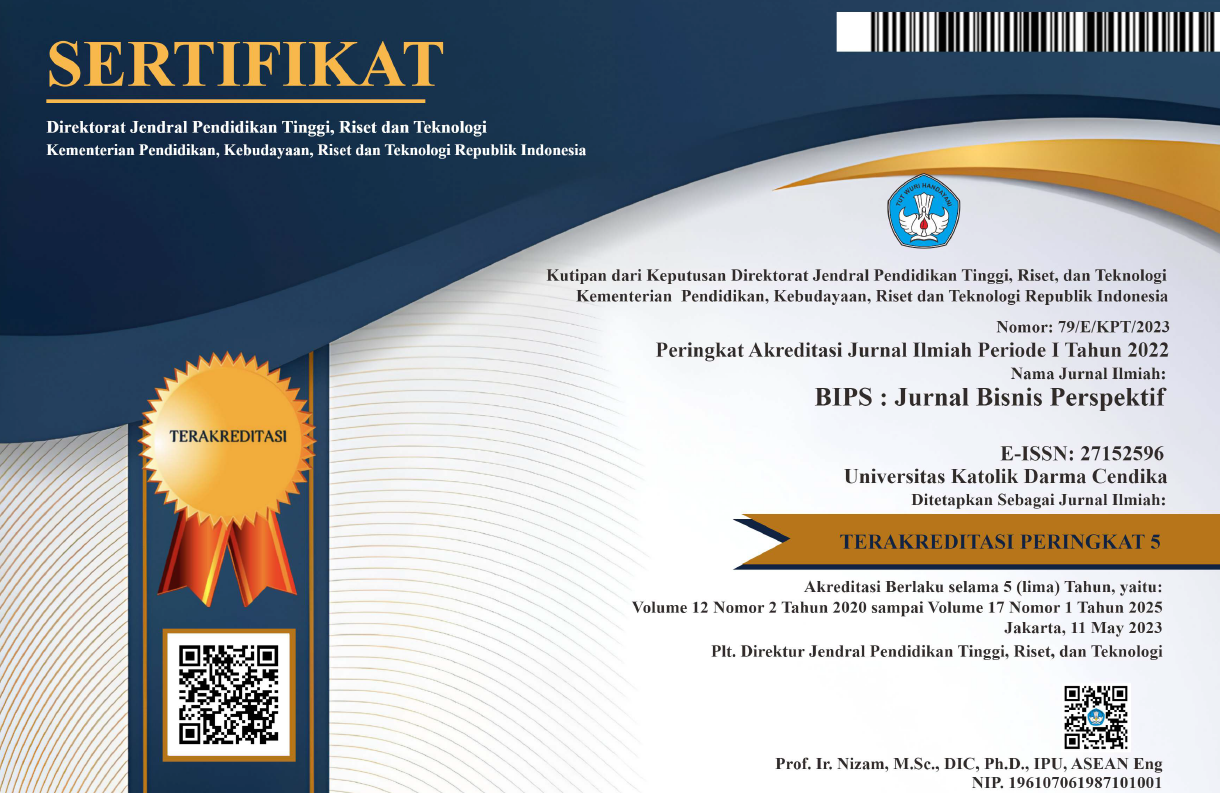FAKTOR YANG BERPENGARUH TERHADAP ENTREPRENEURIAL INTENTION
DOI:
https://doi.org/10.37477/bip.v15i2.459Keywords:
Locus of Control, Need for Achievement, Risk Tolerance, Entrepreneurial Alertness, Entrepreneurial IntentionAbstract
Penelitian ini dilakukan untuk mengetahui dan menganalisis pengaruh Locus of Control, Need for Achievement, Risk Tolerance, Entrepreneurial Alertness terhadap Entrepreneurial Intention. Penelitian ini menggunakan metode penelitian kuantitatif dengan populasi yang digunakan adalah mahasiswa Program Studi International Business Management - Regular Class (IBM-RC), UC dan kriteria sampel yang diambil yaitu mahasiswa minimal Semester 7 yang sedang atau telah mengambil mata kuliah IRBP (Integrated Real Business Practice). Jumlah sampel yang digunakan sebanyak 80 orang. Teknik pengambilan sampel dilakukan dengan metode purposive sampling. Hasil penelitian dengan analisis regresi linier berganda dilakukan dan menghasilkan perhitungan yang menyatakan bahwa Locus of Control (nilai Sig=0,022), Need for Achievement (nilai Sig=0,026), dan Entrepreneurial Alertness (nilai Sig=0,000) berpengaruh signifikan terhadap Entrepreneurial Intention, sedangkan Risk Tolerance (nilai Sig=0,764) tidak berpengaruh signifikan terhadap Entrepreneurial Intention.
Downloads
Published
How to Cite
Issue
Section
License
Authors publishing in this journal agree to the following terms:
- The author retains copyright and grants the journal rights of first publication with the work simultaneously licensed under a Creative Commons Attribution ShareAlike License License that allows others to share the work with acknowledgment of the author's work and initial publication in BIP's: Journal of Business Perspectives.
- Authors may include separate additional contractual arrangements for non-exclusive distribution of the published version of the journal (e.g., submit to an institutional repository or publish in a book), with an acknowledgment of the original publication in this Journal.
- Authors are permitted and encouraged to post their work online (e.g., in institutional repositories or on their websites) before and during the submission process, as it can lead to productive exchanges, as well as citations of previously published work.
Each author is expected to complete the copyright process with a document of the originality of the manuscript, the templated document is below:


7.png)


6.png)
2.png)


